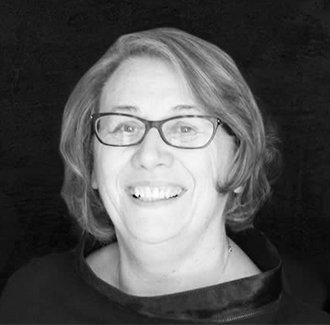IT IS TIME TO ABANDON THE FARCE OF SETTLING CASES WITHOUT AN ADMISSION OF LIABILITY
Posted in [Blog Medical Negligence ] on Thursday, May 30th, 2019
As a Solicitor who has specialised in medical negligence cases for almost 30 years, I am calling for the farcical practice of settling cases “without admission of liability” to be bought to an end. I think this practice is insulting to the Plaintiff who has had to bring the proceedings and I question why the Defendant who has caused the injury, is afforded this luxury. It follows where cases are settled on this basis, that an apology will also not be given.
I struggle to understand why is it that the payment of compensation is considered sufficient to satisfy a person who was injured or the family who has lost a loved one due to a medical error, which could have been avoided. Medical negligence cases are, by their very nature, personal. The injury or death of a loved one has had a major impact on the party seeking redress. In catastrophic or personal injuries cases, the injured party will need compensation to assist them live out their lives within the confines of their injuries. However, in fatal cases, compensation is not the motiving factor. Indeed, if one applied a cost/benefit analysis to any fatal claim, economics would mandate that fatal cases should never be brought. However, family members insist on taking litigation, as they see it as the final act that they can do for their departed loved one. Fatal cases are so emotionally charged. Families are primarily concerned with what they see as vindicating the deceased member of the family. As a Solicitor, one has to be extremely careful as there is often a psychological/psychiatric component to the case. One has to ensure that these cases can be successfully prosecuted, because if the case is not successful, then you could be exposing your clients to an adverse costs order that would financially ruin the family.
Invariably, at the outset, all clients tell me that they want to feel that their concerns about their care are acknowledged. They are looking for an apology and want reassurance that steps will be taken to prevent the error happening to another person/family. I explain to clients that from our own expertise we can (with assistance from experts we retain), of course, piece together what happened. If we can establish negligence, then in all probability they will receive financial compensation be it through a settlement or by way of a hearing. I explain to them that if they are getting compensation from the person who has caused the injury or death, then it is tantamount to an admission of liability and that if one has to ask for an apology, one questions if it is truly a genuine apology.
The injured/bereaved party then has to come to terms with this anomaly and then find the emotional and financial recourses to bring proceedings through the Courts. They are often shocked that the full might of the State/Insurers is used to try and defend the case. Eventually, having taken the proceedings, cleared all the procedural hoops and secured a trial date, they may have an offer of settlement made on the morning of the trial. In a fatal case, more often than not, the settlement requires that the matter is put before the Court for approval. The Defendant’s Counsel will address the Court at the outset and inform the Court that the case has settled “without admission of liability”. Further, the Final Order will issue which will state something along the following lines: “And it appearing that a settlement has been reached herein subject to the approval of the Court and without admission of liability.” Where cases settle “without admission of liability” it follows than an apology will not be given. This adds salt to the wound.
I wonder why is it that the medical profession view an expression of sympathy as being tantamount to being an admission of guilt or liability. I would like to add that Ireland is well served by its healthcare professionals. There are of course exceptions as there are in every profession. The exceptions however are few and far between. Further, no professional gets up in the morning and says “I plan to injure a patient today”. The majority, if not all, of injuries caused by medical negligence have occurred because of an error which could have been avoided, but which was unintended. I am also aware that a health professional who has caused an error leading to the injury can and often will be upset by the damage that they have caused. In fairness, I have known of Doctors who are full and frank with patients and families where an adverse event occurred but when a case is brought there appears to be a disconnect between the healthcare professionals and their indemnifiers who then, despite the frank disclosure, go on to fully defend the case. It appears that the indemnifiers are conditioned and occasionally advise healthcare professionals to refrain from making any statement/apology. An apology does not nor ever will equate to negligence. In order to prove a case, one has to establish that the treatment received fell below the standard expected from reasonably competent medical practitioners. If the treatment did fall below a minimum standard, we also need to prove that it was this substandard treatment which resulted in a poor outcome. It appears that this point was also lost by our Legislators in the Civil Liability (Amendment) Act 2017 which specifically states that “an apology where it is made, at an open disclosure meeting in respect of a patient safety incident shall not constitute an express or implied admission, by a health practitioner, of fault, professional misconduct, poor professional performance, unfitness to practise a health service, or other failure or omission” However, even with that protection, apologies are not given. To me, and to all right thinking people, an apology is morally and ethically required. My clients question the logic as to how someone can pay compensation but not admit liability or indeed apologise. Indeed, the medical profession’s own code of ethics requires that an apology should be given but the stipulation allows for wriggle room in that it states “if required”. We need to change the culture behind that thinking and that will come through education. In the interim, the practice of settling cases “without admission of liability” should not be allowed.
Prior to commencing practice in Ireland in 2006, I was a Partner in a London firm of Solicitors which acted for both patients who had suffered from medical accidents and indeed for Hospital Trusts who were being sued for such events. I concluded many cases in the UK on both sides of the fence. However, the practice norm in all settlement discussions was that there would be a full and frank ventilation on the liability issues before there was any discussion on the value of the case. Indeed, if I was acting for a person who was injured I would insist on a written open admission of liability. If the case was as a result of a catastrophic injury, then I would formalise the admission and apply to the Court to get Judgement entered on the admission. There was no skirting around the issue of liability in the UK. Where liability was admitted, the injured party felt vindicated.
Contact us at Cantillons Solicitors at +353 (0)21 -4275673 or info@cantillons.com if you would like more information.
* In contentious business, a solicitor may not calculate fees or other charges as a percentage of any award or settlement.

Partner
Experience
Pat’s first 10 years of her professional life were in Nursing. She trained and qualified as a Nurse (RGN) in London. On qualifying, she specialised in Intensive Care nursing and obtained a number of post graduate nursing qualifications. Pat worked in various Intensive Care Units in the London area to include Great Ormond Street, the London Chest Hospital and Whipps Cross Hospital where she was appointed to the position of Senior Sister in Intensive Care. Thereafter, Pat studied Law and on obtaining her Law Degree and Solicitors’ Final Examinations she did her apprenticeship with a London firm who had a renowned reputation for medical negligence. On qualifying, Pat remained with the same firm and was made Partner. She was instrumental in the firm obtaining one of the first (if not the first) Legal Aid franchise for medical negligence in the UK. Pat remained with the firm for 13 years. In November 2006, on returning home, Pat joined the Medical Negligence team in Cantillons Solicitors. Pat’s combined nursing and legal knowledge has been invaluable in her practice.
Over the last two decades, Pat has brought a significant number of high value complex catastrophic injury cases to trial to include Cerebral Palsy, Erbs Palsy, acquired brain injuries, maternal death, obstetric injuries and ophthalmic injuries.
Professional Qualification
- Registered General Nurse (RGN), Senior Sister in Intensive Care 1979-1989
- LLB (Hons), London: 1992
- Solicitors Final Examinations, London 1993
- Solicitor and Partner in London Law Firm from 1995 – 2006
 Back to post
Back to post